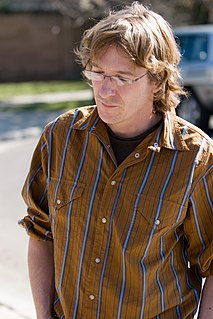A Quote by Susan Rice
I think it's very, very important that in foreign policy and national security decision making, as in any other realm, that there be a range of diversity that reflects the full complexity of America. We should draw on those experiences to inform our decision making.
Related Quotes
Another longstanding foreign policy flaw is the degree to which special interests dictate the way in which the "national interest" as a whole is defined and pursued.... America's important historic relationship with Israel has often led foreign policy decision-makers to defer reflexively to Israeli security assessments, and to replicate Israeli tactics, which, as the war in Lebanon last summer demonstrated, can turn out to be counter-productive.
while the executive should give every possible value to the information of the specialist, no executive should abdicate thinking on any subject because of the expert. The expert's information or opinion should not be allowed automatically to become a decision. On the other hand, full recognition should be given to the part the expert plays in decision making.
Obama's decision to leave, to not sustain the victory that resulted after eight years of fighting, from 2003 to 2011 in Iraq, was another incredibly stupid decision. It was totally based on politics, not based on any notion of national security. It's a nightmare for our national security. And then you have the Libya intervention.
We had very good discussions on current security challenges and NATO's continued adaptation to meet them. Canada is a committed ally and a capable contributor to international security. We appreciate your quick decision to deploy forces, planes and ships to strengthen our collective defence in view of Russia's aggressive actions in Ukraine, as well as your contribution to the international anti-ISIL coalition. Canada plays a major part in our decision-making and helps keep the vital bond between Europe and North America strong.
Maybe it's understandable what a history of failures America's foreign policy has been. We are, after all, a country full of people who came to America to get away from foreigners. Any prolonged examination of the U.S. government reveals foreign policy to be America's miniature schnauzer -- a noisy but small and useless part of the national household.
When making a decision of minor importance, I have always found it advantageous to consider all the pros and cons. In vital matters, however, such as the choice of a mate or a profession, the decision should come from the unconscious, from somewhere within ourselves. In the important decisions of personal life, we should be governed, I think, by the deep inner needs of our nature.
There are a lot of very fine upstanding gays who are good citizens and all that. I am not making a decision for individual people. But when it comes to a societal policy, I think there are not enough babies for adoption to go around. I think a preference should be given to families with a mother and father who have a lifetime commitment.
That Alaska has a very narrow maritime border between a foreign country, Russia, and on our other side, the land boundary that we have with - Canada. We have trade missions back and forth. We - we do - it's very important when you consider even national security issues with Russia as Putin rears his head and comes into the airspace of the United States of America where - where do they go? It's Alaska.












































